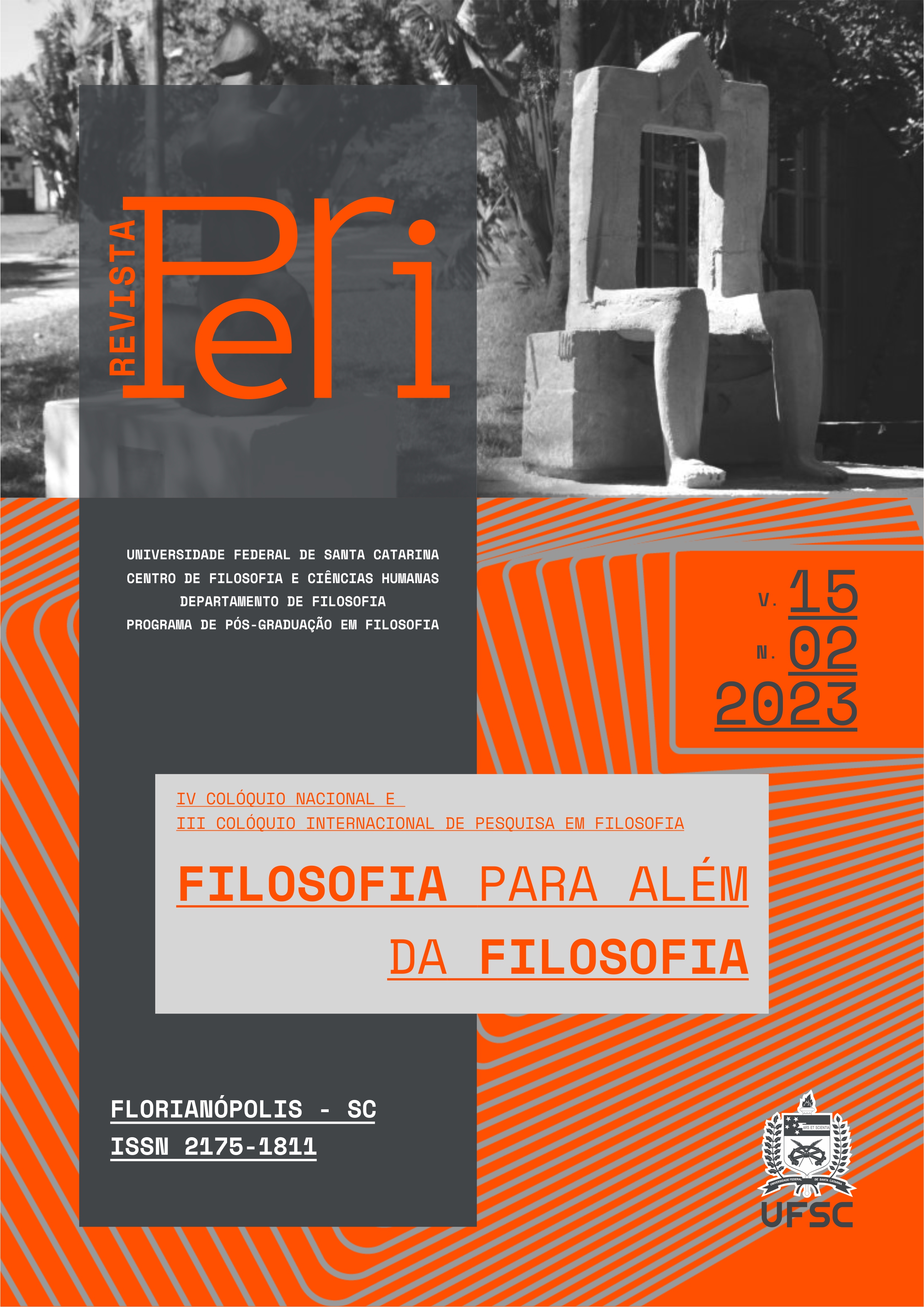Governamentalidade e governamentalidade algorítmica
continuidades e descontinuidades na racionalidade política moderna
Palavras-chave:
Governamentalidade, Governamentalidade Algorítmica, Sociedades de controle, CibernéticaResumo
O objetivo do presente artigo é realizar uma análise relacional dos conceitos de governamentalidade algorítmica, proposto por Rouvroy e Berns e de governamentalidade, proposto por Foucault, buscando entender as continuidades e diferenças do primeiro em relação ao último em termos epistêmicos e sociopolíticos. Para isso, dividiremos nossa exposição em dois momentos: o primeiro é dedicado à exposição de conceitos políticos foucaultianos como biopoder, dispositivos de poder e governamentalidade; e o segundo é dedicado ao conceito de governamentalidade algorítmica, em que buscaremos entender as transformações operadas pelas estratégias e tecnologias de poder na virada do paradigma disciplinar para o paradigma do controle, tal como introduzido no debate contemporâneo por Deleuze. Concluímos argumentando que a governamentalidade algorítmica carrega, enquanto tecnologia política, preocupações semelhantes à governamentalidade tradicional, mas as atualiza em uma nova estrutura tecno-epistêmica, que tende a produzir novas formas de subjetivação que não são mais sustentadas no discurso jurídico ou na disciplina, mas na construção de perfis digitais.
Referências
BARDIN, A; FERRARI, M. Governing progress: From cybernetic homeostasis to Simondon’s politics of metastability. The Sociological Review Monographs, Keele, v. 70, n. 2, p. 248–263, 2022.
CASTRO, E. EI vocabulario de Michel Foucault. Bernal: Universidad Nacional de Quilmes Editorial, 2004.
DELEUZE, G. Post-scriptum sobre as sociedades de controle. In: DELEUZE, G. Conversações: 1972-1990. São Paulo: Editora 34, 1992.
DEUTSCH, K. The Nerves of Government: models of political communication and control. New York: The Free Press, 1966.
DUPUY, J-P. Nas origens das ciências cognitivas. SP: Ed. Unesp. 1994.
FOUCAULT, M. Em Defesa da Sociedade: Curso no Collège de France (1975-1976). São Paulo: Martins Fontes, 2005.
______. Microfísica do poder. Rio de Janeiro: Graal. 1998.
______. Omnes et Singulatim: uma Crítica da Razão Política. In.: FOUCAULT, M. Estratégia, Poder-Saber (Ditos & Escritos IV). Rio de Janeiro: Forense Universitária, 2006.
______. O sujeito e o poder. In: DREYFUS, H; RABINOW, P. Michel Foucault, uma trajetória filosófica: para além do estruturalismo e da hermenêutica. Rio de Janeiro: Forense Universitária, 1995.
______. Segurança, Território e População. Curso no Collège de France (1977-1978). São Paulo: Martins Fontes, 2008.
______. Sobre a história da sexualidade. In: ______. Microfísica do poder. Rio de Janeiro: Graal. 1998.
HEIMS, S. J. The cybernetics group: constructing a social science for postwar America. Cambridge: The MIT Press, 1991.
KLINE, R. R. The cybernetics moment: or why we call our age the information age. Baltimore: Johns Hopkins University Press, 2015.
MACHADO, R. Introdução. In: FOUCAULT, M. Microfísica do poder. Rio de Janeiro: Graal. 1998.
PASQUINELLI, M. Capitalismo maquínico e mais-valia de rede: Notas sobre a economia política da máquina de Turing. Lugar Comum, Rio de Janeiro, nº 39, p. 13-36, 2013.
RODRÍGUEZ, P. Gubernamentalidad algorítmica — sobre las formas de subjetivación en la sociedad de los metadatos. Revista Barda, Neuquén, n. 6, p. 14-35, jun. de 2018.
ROUVROY, A; BERNS, T. Governamentalidade algorítmica e perspectivas de emancipação: o díspar como condição de individuação pela relação? Revista Eco Pós, Rio de Janeiro, v. 18, n. 2, p. 36-56, 2015. DOI: https://doi.org/10.29146/eco-pos.v18i2.2662
SINGER, P. Para entender o mundo financeiro. São Paulo: Contexto, 2000.
STIEGLER, B. Automatic Society 1: The future of work. Cambridge: Polity Press, 2016.
TIQQUN. The Cybernetic Hypothesis. Cambridge: The MIT Press, 2020.
VILALTA, L. P. O neoliberalismo é uma governamentalidade algorítmica. Lacuna, São Paulo, n. 9, p. 7, 2020.
WIENER. N. Cybernetics: or control and communication in the animal and the machine. Cambridge: The MIT Press, 2019.
Downloads
Publicado
Edição
Seção
Licença
Copyright (c) 2023 Jorge Luiz Domiciano

Este trabalho está licenciado sob uma licença Creative Commons Attribution-NonCommercial-ShareAlike 4.0 International License.
1. Autores mantém os direitos autorais e concedem à revista o direito de primeira publicação, com o trabalho simultaneamente licenciado sob a Creative Commons Attribution License que permite o compartilhamento do trabalho com reconhecimento da autoria do trabalho e publicação inicial nesta revista.
2. Autores têm autorização para assumir contratos adicionais separadamente, para distribuição não-exclusiva da versão do trabalho publicada nesta revista (ex.: publicar em repositório institucional ou como capítulo de livro), com reconhecimento de autoria e publicação inicial nesta revista.
3. Autores têm permissão e são estimulados a publicar e distribuir seu trabalho online (ex.: em repositórios institucionais ou na sua página pessoal) a qualquer ponto antes ou durante o processo editorial, já que isso pode gerar alterações produtivas, bem como aumentar o impacto e a citação do trabalho publicado (Veja O Efeito do Acesso Livre).


